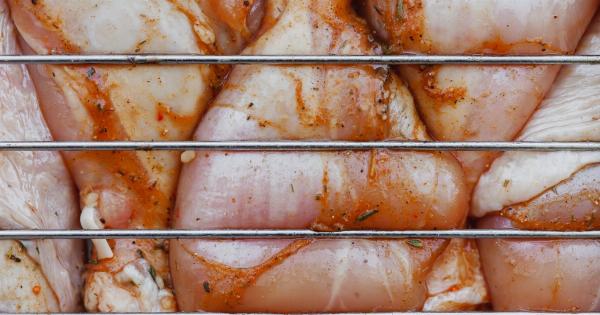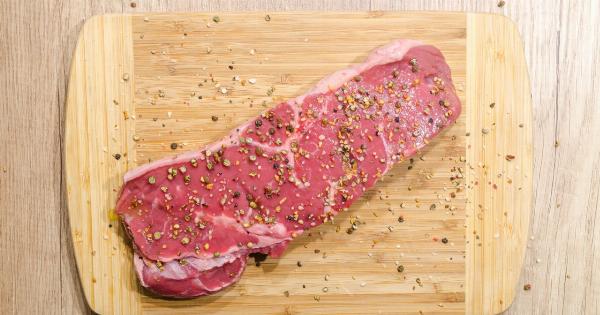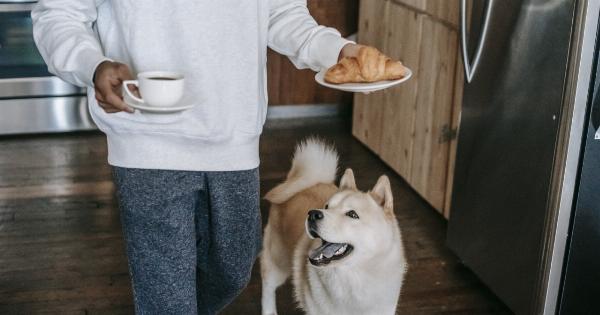As dog owners, we understand the importance of providing our furry friends with the best care possible. This includes giving them a balanced diet that meets their specific nutritional needs.
Just like humans, dogs have different dietary requirements and tastes, so it’s essential to create a personalized menu for our four-legged family members. In this article, we will explore the importance of a personalized menu for our dogs and provide some tips on how to create one that will keep them happy and healthy.
Understanding Your Dog’s Nutritional Needs
Before we can create a personalized menu for our dogs, it’s crucial to understand their nutritional needs. Dogs require a balanced diet that consists of proteins, carbohydrates, fats, vitamins, and minerals.
The specific requirements may vary based on the dog’s age, size, breed, activity level, and any underlying health conditions. Consulting with a veterinarian can help determine the optimal nutritional plan for your dog.
Protein: The Foundation of a Healthy Diet
Protein is an essential component of a dog’s diet, as it provides the building blocks for healthy muscles, tissues, and enzymes.
The primary source of protein for dogs is meat, which can come from various animal sources, including chicken, beef, fish, or lamb. It’s important to choose high-quality protein sources that are lean and easily digestible. Avoid processed meats and meat by-products that may contain additives or fillers.
Carbohydrates: Energy for Dogs
Carbohydrates are an essential source of energy for dogs. They provide the necessary fuel for daily activities and help maintain healthy brain function. Good sources of carbohydrates for dogs include whole grains, such as brown rice, oats, and quinoa.
These grains are rich in fiber, which aids in digestion and regulates blood sugar levels. Avoid refined grains or excessive amounts of carbohydrates, as they can contribute to weight gain and other health issues.
Healthy Fats: Essential for Canine Health
Fats play a crucial role in a dog’s diet, providing energy, insulation, and aiding in the absorption of fat-soluble vitamins.
Healthy fats, such as omega-3 and omega-6 fatty acids, are beneficial for a dog’s skin, coat, and overall immune function. Sources of healthy fats include fish oil, flaxseed oil, and coconut oil. It’s important to avoid high-fat diets that can lead to obesity or pancreatitis.
Include Essential Vitamins and Minerals
Vitamins and minerals are necessary for our dog’s overall health and well-being. These micronutrients support various functions in their body, including immune system function, bone health, and cell regulation.
While a balanced diet usually provides sufficient vitamins and minerals, it’s a good idea to include a variety of fruits and vegetables in their menu. Some dog-friendly options include carrots, sweet potatoes, spinach, and blueberries.
The Importance of Portion Control
While creating a personalized menu for our dogs, it’s crucial not to overlook portion control. Overfeeding can lead to obesity and other health problems.
Pay attention to your dog’s weight, size, and activity level to determine the appropriate portion size. It’s also a good idea to divide their daily food intake into multiple meals throughout the day to prevent overeating.
Customizing the Menu for Your Dog
Now that we have a better understanding of our dog’s nutritional needs, it’s time to create a personalized menu. Start by selecting a high-quality commercial dog food that meets your dog’s requirements.
Look for options that have real meat as the first ingredient and avoid those with fillers or artificial additives.
In addition to commercial dog food, you can introduce homemade meals or add-ons to enhance the nutritional value of their diet. Here are a few ideas:.
1. Homemade Meals
If you have the time and resources, preparing homemade meals for your dog can be a rewarding experience. This allows you to have full control over the ingredients and create a rotation of different recipes to avoid monotony.
Remember to include a proper balance of proteins, carbohydrates, and fats in each meal. Avoid ingredients that are toxic to dogs such as onions, garlic, grapes, and chocolate.
2. Raw Food Diet
Raw food diets have gained popularity among some dog owners. This approach involves feeding dogs raw meat, bones, fruits, and vegetables.
Proponents of this diet claim that it mimics the natural feeding habits of dogs’ ancestors and promotes better overall health. However, it’s important to exercise caution and proper hygiene when handling raw food to prevent any foodborne illnesses for both your dog and your family.
3. Nutritional Add-ons
In addition to their regular meals, you can consider adding nutritional supplements or specific add-ons to boost your dog’s health. Consult with your veterinarian before adding any supplements to ensure they are appropriate for your dog.
Some popular add-ons include probiotics for gut health, glucosamine for joint support, or fish oil for a shiny coat and cognitive health.
4. Catering to Your Dog’s Preferences
Just like humans, dogs also have their preferences when it comes to food. Some enjoy crunchy treats, while others prefer soft and chewy options. Pay attention to what your dog enjoys and incorporate their preferences into their personalized menu.
This will make mealtime more enjoyable for your dog and increase their willingness to eat.
Monitoring and Adjusting the Menu
Creating a personalized menu for your dog is not a one-time task. It’s essential to monitor their health, energy levels, and overall well-being regularly.
Keep an eye on their weight and body condition, as sudden changes may indicate a need for adjustments in their diet. Additionally, consult with your veterinarian to discuss any specific health concerns or dietary requirements that may arise over time.
Conclusion
Designing a personalized menu for our dogs is a testament to the love and care we have for them.
By understanding their unique nutritional needs, considering their preferences, and monitoring their health, we can provide them with a diet that supports their overall well-being. Remember, just like us, our canine companions deserve the best when it comes to their meals.



























